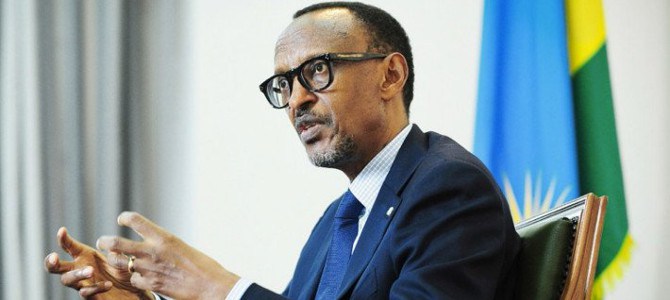
KAMPALA/KIGALI – The government of Rwanda is in the spotlight after a report in a UK newspaper indicated that they manipulated their poverty statistics to cast the country in good light.
According to Financial Times, a UK newspaper manipulated the data just before a referendum in 2015 that allowed President Paul Kagame to extend his then 15-year rule for up to another two decades.
While the Rwandan Bureau of Statistics says poverty has reduced progressively since 2001 in the country of 12m people, France 24, quotes a report published in the Financial Times on Tuesday, which shows that “analysis of the survey’s more than 14,000 data points and interviews with academics shows that rising prices for Rwandan families meant poverty most likely increased between 2010 and 2014”. France24 quotes the English daily indicating that “there has been a consistent attempt since 2015 to misrepresent the results” regarding poverty.
Under the headline titled, ‘Rwanda: where even poverty data must toe Kagame’s line’, published on Tuesday, August 13, Financial Times casts doubt on both the strength of the proclaimed economic miracle and the integrity of Rwanda’s relationship with its biggest donor.
The report indicates that Rwanda assesses poverty levels via a regular household survey that asks what a representative sample of Rwandans are consuming on an annual basis. It then compares the costs of those goods to a national poverty line. The result of survey, published in August 2015 as Mr Kagame was preparing for the referendum, indicated that the proportion of the country living in poverty had fallen from 44.9 per cent of the population in 2011 to 39.1 per cent in 2014, it said.
According to Financial Times, the finding was immediately challenged, with experts arguing that measuring levels of poverty, like calculating other economic indicators, is a complex process in which different assumptions need to be made about factors ranging from the type and value of the products consumed by the population to how prices are likely to have changed over time and geography.
Experts argued that while countries often update the way their poverty line is calculated, Rwanda did not initially make the same adjustments to the results of the previous survey, rendering the government’s comparison of poverty levels between 2011 and 2014 flawed.

Financial Times quotes Sam Desiere, a senior researcher at Belgium’s University of Leuven who has studied Rwanda’s poverty statistics, saying average prices probably increased by at least 30 per cent between 2011 and 2014 based on his analysis of price data included in Rwanda’s household survey. That conclusion would infer that poverty increased by about 6.6 percentage points, according to the FT analysis. “The higher the inflation rate,” says Mr Desiere, “the more poverty increases.”
The Financial Times also published for the first time an internal letter that five World Bank staff members wrote to the institution’s leaders in 2015. The authors voiced their concern over what they called “the manipulation of official statistics and failure to provide reliable data openly”.
“Recent developments point to potentially serious reputational risks for the Bank if its Rwanda operations continue in the current trajectory,” the World Bank letter published in the Financial Times reads in part.
However, Rwanda and World Bank dismissed the newspaper’s findings, insisting their own calculations are accurate.
“Rwanda’s performance in poverty reduction?.?.?.?is unequivocally real,” Yusuf Murangwa, director-general of the National Institute of Statistics of Rwanda, is quoted by Financial Times as saying. Progress was further corroborated, he adds, by the positive trend in other areas including financial inclusion, the expansion of tax receipts and the results of the country’s demographic and health surveys. “None of that would have been possible if poverty had actually been rising, as alleged,” he says.






